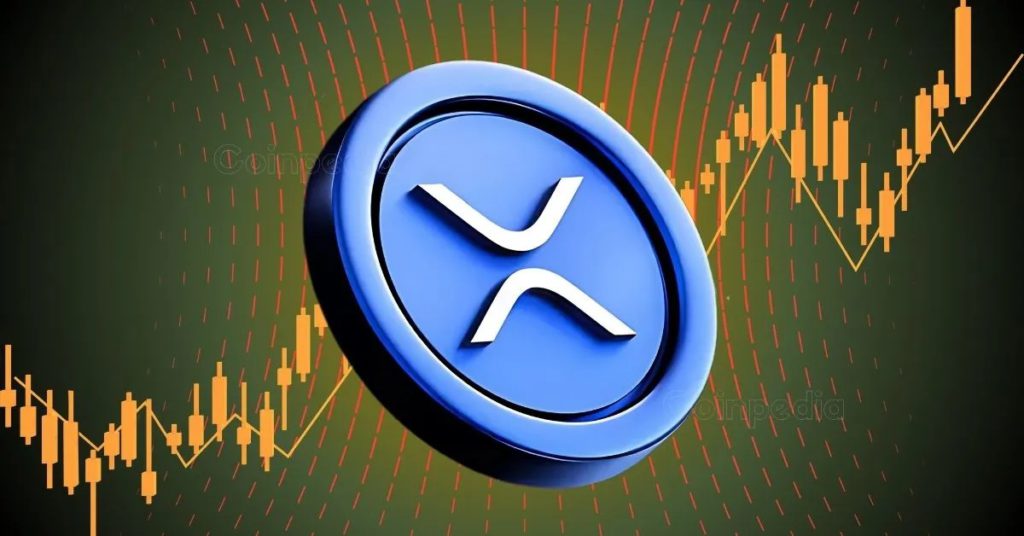Ripple Predicts Global Asset Tokenization Surge to Reach Rp321,235 Trillion by 2033

Jakarta, Pintu News – Ripple, a blockchain technology company known for its Ripple cryptocurrency, recently projected the huge potential of tokenizing real-world assets on a global scale. According to the company’s report, the total value of tokenized assets could reach $18.9 trillion or around Rp321,235 trillion by 2033.
This prediction reflects optimism towards the development of blockchain technology and its increasing adoption in the financial and crypto industries. With such projections, tokenization is touted as one of the key trends that will shape the future of the digital finance sector.
Tokenization of Real World Assets
Tokenization of real-world assets refers to the process of digitizing physical assets such as real estate, art, or commodities into digital tokens that can be traded on blockchain platforms. This process enables fragmentation of ownership, increases liquidity, and eases investment access for individuals and institutions. With tokenization, assets that were previously difficult to trade become more accessible to the global market. This has the potential to change the traditional way of investing and trading assets.
Blockchain provides higher transparency and security in asset transactions. Since the entire transaction is recorded in an immutable system, the risk of fraud can be minimized. In addition, with the use of smart contracts, the process of buying and selling or ownership can be done automatically and efficiently. This development is believed to have a significant impact on investor confidence in crypto technology.
Also Read: Bitcoin (BTC) is recovering, but big hurdles still loom in April 2025
Significant Growth Predicted

Ripple projects that the value of tokenized assets will jump to $18.9 trillion or the equivalent of Rp321,235 trillion within eight years. This figure signals a major shift in the adoption of digital technology, particularly in the use of crypto as a global financial hub. According to the report, the tokenization process is already underway with the involvement of major financial institutions.
This growth is also reinforced by the market’s increasing confidence in cryptocurrencies as a means of exchanging value and storing assets. Tokenization not only opens up opportunities for large investors, but also the general public to access previously exclusive investments. Ripple states that this trend is ongoing and will continue to grow as understanding of the benefits of blockchain increases. This shows the long-term potential of this technology in driving financial inclusion.
Impact on the Financial Industry
If tokenization is widely adopted, it will fundamentally change the way the traditional financial industry works. Assets such as stocks, bonds, or even intellectual property rights could be converted into tokens that are traded globally. This allows for faster and more efficient cross-border transfers of value without the need for traditional intermediaries such as central banks or clearing houses.
Financial institutions have begun to respond to this change by exploring their own tokenization projects. Widespread adoption will require clear regulatory support and a strong digital infrastructure. Governments and financial authorities in various countries are also beginning to consider a balanced approach to innovation and consumer protection. With an adequate legal framework, the growth of tokenization can be healthy and controlled.
Challenges and Opportunities
Despite its great potential, tokenization faces a number of challenges that cannot be ignored. Issues related to data security, integration between systems, and regulatory compliance are the main obstacles that need to be resolved. Differences in standards and technology between blockchain platforms can also hinder interoperability and system efficiency.
However, this challenge also opens up space for innovation and collaboration between industry players, regulators, and technology developers. Public education on the concepts of tokenization, crypto, and the benefits of these technologies in everyday life is needed. If executed with an inclusive and security-oriented approach, tokenization can be an important tool in expanding access to global digital finance. The future of the cryptocurrency industry will be largely determined by the successful adoption of tokenization.
Conclusion
With a projected value of Rp321,235 trillion by 2033, asset tokenization has the potential to revolutionize the world of finance, including crypto and the cryptocurrency ecosystem as a whole.
Ripple is positioning itself as a pioneer in this transition, but its successful implementation depends heavily on regulatory readiness, technology, and public understanding. Amidst these rapid developments, collaboration between various parties is key. Tokenization is not just a trend, it is likely to become a key pillar in the financial system of the future.
Also Read: First XRP ETF in the US Launched, Provides New Investment Opportunities!
That’s the latest information about crypto news today. Get more information about crypto academy from beginner to expert level only at Pintu Academy and enrich your knowledge about the world of crypto and blockchain.
Follow us on Google News to get the latest information about crypto and blockchain technology. Enjoy an easy and secure crypto trading experience by downloading Pintu Crypto via Google Play Store or App Store now.
Experience web trading with advanced trading tools such as pro charting, various order types, and portfolio tracker only at Pintu Pro. Click Register Pintu if you don’t have an account or click Login Pintu if you are already registered.
*Disclaimer
This content aims to enrich readers’ information. Pintu collects this information from various relevant sources and is not influenced by outside parties. Note that an asset’s past performance does not determine its projected future performance. Trading crypto carries high risk and volatility, always do your own research and use cold hard cash before investing. All activities of buying and selling Bitcoin and other crypto asset investments are the responsibility of the reader.
Reference:
- Bitcoin.com. Ripple Predicts $18.9 Trillion Tokenization Boom-And It’s Already Underway. Accessed April 9, 2025.
- Featured Image: FinBold




